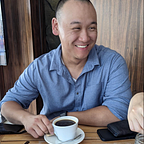04 JUN 20
I think I was in fifth grade when I read a novel for school set during the Tiananmen Protests, and, eventually, the Tiananmen Massacre.
My mother, though almost never a dogmatic Communist, took issue with the novel, and the fact that I was being assigned to read it. A ten-year-old Chinese-Canadian has little grasp of the philosophical complexities of being Chinese in a western, democratic country — this conflict was my first hint that there was anything complicated about it at all.
I was told that the People’s Liberation Army had no choice but to disperse the protesters in the early days of June, 1989. The protests had gone on for weeks, defying negotiation and reasoning. The students didn’t even know what they wanted anymore, she claimed. Deng Xiaoping had heard and agreed to listen to them. Still they persisted, sullying and vandalizing the former home of emperors, making a laughingstock of China in front of the world.
Estimates of the number of people killed at Tiananmen vary from the official figures of a few hundred, to the frequent independent figures of two or three thousand.
The late 80s were a time of skyrocketing prosperity for China, as the Deng government’s economic reforms led a poor, agrarian nation into the modern world. This was a time it was great to be Chinese. This was a time that, to many, or even most, people on the ground, it seemed by all accounts that the system was working, that the system was good. Their lives, after all, were good, and getting better by the day.
Regular, decent people can give a lot of credit to authority, especially when authority is good to them. Illegal, disruptive opposition can seem counterproductive or evil when everything in your experience tells you that society is good and moving people forward.
We have a unique point of view as Canadians, the loudly-but-barely-not-American neighbours of the most powerful country in the world. We are so immersed in American media and discourse that I think it’s easy for us to be caught in the ideological trap of American exceptionalism. Other countries are countries and America is America.
If a country has a prison system farther wide than God can see, filled with a specific minority group, it’s a five-dollar word like Totalitarian. Unless it’s America. If a country has an economic system that allows few to have more money than they can spend in a hundred lifetimes, while most live in fear every day of starving or dying of inadequate medical care, it’s a poli sci department thesis phrase like a Failed State. Unless it’s America.
If it’s in Tehran or Moscow or Hong Kong, a protest, a mob, a destructive riot is the language of the unheard and desperate trying to reform a tyrannical government when they found it impossible to do by any other means.
Outside of sport results, people are rarely willing to riot. Compared to voting or signing petitions or sternly worded letters to your congressperson, rioting puts yourself in grave physical danger. Burning down the city you live in is an incomprehensible idea, unless it’s the only way you have to effect change in a government that refuses to listen to anything but a fire. The decision calculus only makes sense when that danger is worthwhile, because a century or so of ballots and petitions and letters haven’t made anything better, and so you have to vote with your life by putting it on the line in a fight against the state.
Unless it’s in America.
#BlackLivesMatter
